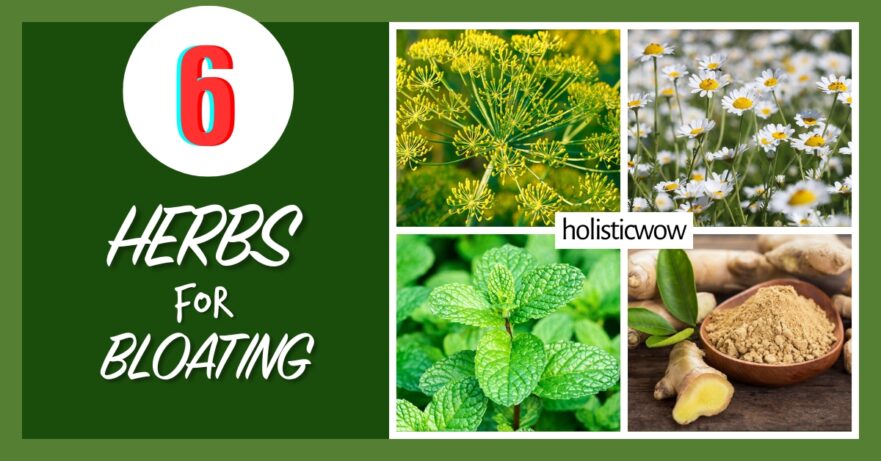In this article about herbs for bloating:
🌿 Best Herbs to Banish Bloating Naturally | 📜 Herbal Preparations and Recipes for Bloating Relief | ☯️ Integrating Herbs into Daily Life for Bloating Relief | 🌱 Navigating Herbs Safely
Bloating is a common digestive issue characterized by abdominal discomfort, fullness, and visible swelling. It can result from gas buildup, food intolerances, or digestive disorders, often leading to pain and disruption of daily activities.
Certain herbs offer natural relief from bloating symptoms. Studies have shown that ginger, fennel, and peppermint, among other herbs, are known for their digestive benefits, helping reduce gas and easing stomach discomfort. These herbs contain compounds that support healthy digestion and soothe the gastrointestinal tract.
We will show you six effective herbs for bloating relief, their properties, and how to use them. Understanding these natural remedies can help you manage digestive discomfort and improve gut health.
Key Takeaways
- 🌿 Effective Herbal Remedies: Chamomile, peppermint, and fennel are proven herbs that can effectively reduce bloating and digestive discomfort.
- 🫚 Culinary Integration: Incorporating herbs like thyme or ginger into your cooking can provide ongoing digestive support and help prevent bloating.
- 🍎 Complementary Practices: Combining herbal remedies with mindful eating, proper hydration, and stress management can enhance their effectiveness in reducing bloating.
🌿 Best Herbs to Banish Bloating Naturally
Bloating is a common digestive issue that affects many people. It occurs when the abdomen feels full, tight, or swollen, often accompanied by discomfort or pain. Ginger (Zingiber officinale), fennel (Foeniculum vulgare), chamomile (Matricaria recutita), peppermint (Mentha piperita), lemon balm (Melissa officinalis), and thyme (Thymus vulgaris) are herbs traditionally used to address bloating.
Bloating symptoms typically include a visibly distended abdomen, feelings of fullness or tightness in the stomach area, and occasional cramping or pain. Some people also experience excessive gas, burping, or abdominal rumbling. These symptoms can range from mild discomfort to severe pain that interferes with daily activities.
Common causes of bloating include overeating, eating too quickly, consuming gas-producing foods, swallowing air, constipation, and food intolerances. In some cases, bloating may be related to underlying digestive disorders such as irritable bowel syndrome (IBS) or small intestinal bacterial overgrowth (SIBO). Hormonal changes, particularly in women during their menstrual cycle, can also contribute to bloating.
Understanding the symptoms and causes of bloating is the first step in finding effective relief. Many people turn to natural remedies, including herbs, to help alleviate bloating and promote digestive comfort.
Ginger (Zingiber officinale)
Ginger (Zingiber officinale) has been used for thousands of years in traditional medicine systems worldwide for digestive issues, including bloating. This root contains compounds called gingerols and shogaols that have anti-inflammatory and antispasmodic effects on the gastrointestinal tract. Ginger helps reduce bloating by enhancing gastric emptying and intestinal motility [1], allowing gas to move through the digestive system more easily. It also has carminative properties, which means it helps prevent and expel gas from the intestines. Research indicates that ginger can help reduce symptoms of bloating and abdominal discomfort [2]. Consuming ginger as a tea, in capsule form, or adding fresh ginger to meals can help relieve bloating and improve overall digestive comfort [3].
Fennel (Foeniculum vulgare)
Fennel (Foeniculum vulgare) is a Mediterranean herb used since ancient times to aid digestion and relieve gastrointestinal discomfort. Fennel contains volatile oils, including anethole, fenchone, and estragole, which give it carminative and antispasmodic properties. These compounds help relax the smooth muscles of the digestive tract, reducing bloating and gas. Fennel also stimulates the production of gastric juices, which can improve digestion and prevent gas formation [4]. Chewing fennel seeds after meals, drinking fennel tea, or taking fennel supplements can help alleviate bloating and promote better digestion.
Chamomile (Matricaria recutita)
Chamomile (Matricaria recutita) is a gentle herb used for centuries to soothe digestive issues, including bloating. This daisy-like flower contains flavonoids and terpenoids with anti-inflammatory, antispasmodic, and carminative properties [5]. Chamomile helps reduce bloating by relaxing the gastrointestinal tract muscles, which can ease cramping and allow gas to pass more easily. It also has mild sedative effects that can help reduce stress-related digestive symptoms. Chamomile can help improve symptoms of functional dyspepsia, including bloating and fullness. Chamomile tea, especially after meals or before bedtime, can help reduce bloating and promote overall digestive comfort.
Peppermint (Mentha piperita)
Peppermint (Mentha piperita) is a hybrid mint known for its cooling and soothing effects on the digestive system. Peppermint contains menthol, which has antispasmodic properties that can help relax the smooth muscles of the gastrointestinal tract. This relaxation can reduce bloating by allowing gas to move more freely through the digestive system. Peppermint also has carminative properties that help prevent gas formation and promote its expulsion [6]. Some research has shown that peppermint oil can help reduce symptoms of IBS [7], including bloating and abdominal pain. Drinking peppermint tea or taking enteric-coated peppermint oil capsules can relieve bloating and improve digestive function. However, peppermint may worsen acid reflux in some people.
Lemon balm (Melissa officinalis)
Lemon balm (Melissa officinalis) is a lemon-scented herb in the mint family used traditionally to treat digestive issues, including bloating. Lemon balm contains volatile oils and flavonoids with carminative, antispasmodic, and mild sedative properties [8]. These compounds help reduce bloating by relaxing the digestive tract muscles and promoting gas expulsion. Lemon balm also has anxiolytic effects [9], which can help reduce stress-related digestive symptoms. Drinking lemon balm tea or taking supplements can help alleviate bloating and promote digestive comfort.
Thyme (Thymus vulgaris)
Thyme (Thymus vulgaris) is an aromatic herb that has been used since ancient times for its medicinal properties, including its benefits for digestive health. Thyme contains volatile oils, particularly thymol [10], and carvacrol, which have carminative, antispasmodic, and antimicrobial properties. These compounds help reduce bloating by promoting gas expulsion and preventing excessive gas formation in the intestines. Thyme also has anti-inflammatory effects that can soothe the digestive tract. Thyme, often combined with other herbs, can help reduce symptoms of indigestion, including bloating and fullness. Adding thyme to meals, drinking thyme tea, or taking thyme supplements can help alleviate bloating and support overall digestive health.
📜 Herbal Preparations and Recipes for Bloating Relief
To address bloating and promote digestive comfort, we have developed specific herbal tea recipes that incorporate the beneficial properties of selected herbs. Each blend supports digestive health, offering natural relief from bloating. These teas provide a soothing, effective herbal remedy for various digestive discomforts.
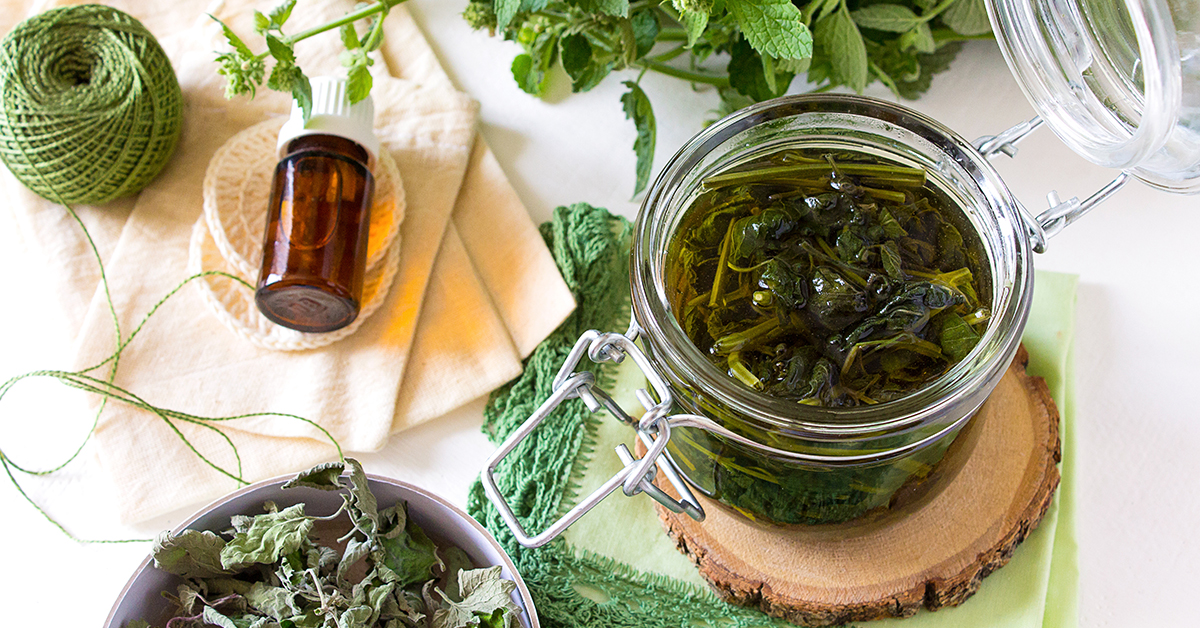
Gentle Digestion Blend
Ingredients:
- 1 teaspoon dried chamomile flowers
- ½ teaspoon dried lemon balm leaves
- ½ teaspoon dried fennel seeds
- 1 cup of boiling water
Preparation:
- Combine all dried herbs in a teapot.
- Add 1 cup of boiling water and steep for 10 minutes.
- Strain and drink after meals to ease mild bloating and promote relaxation.
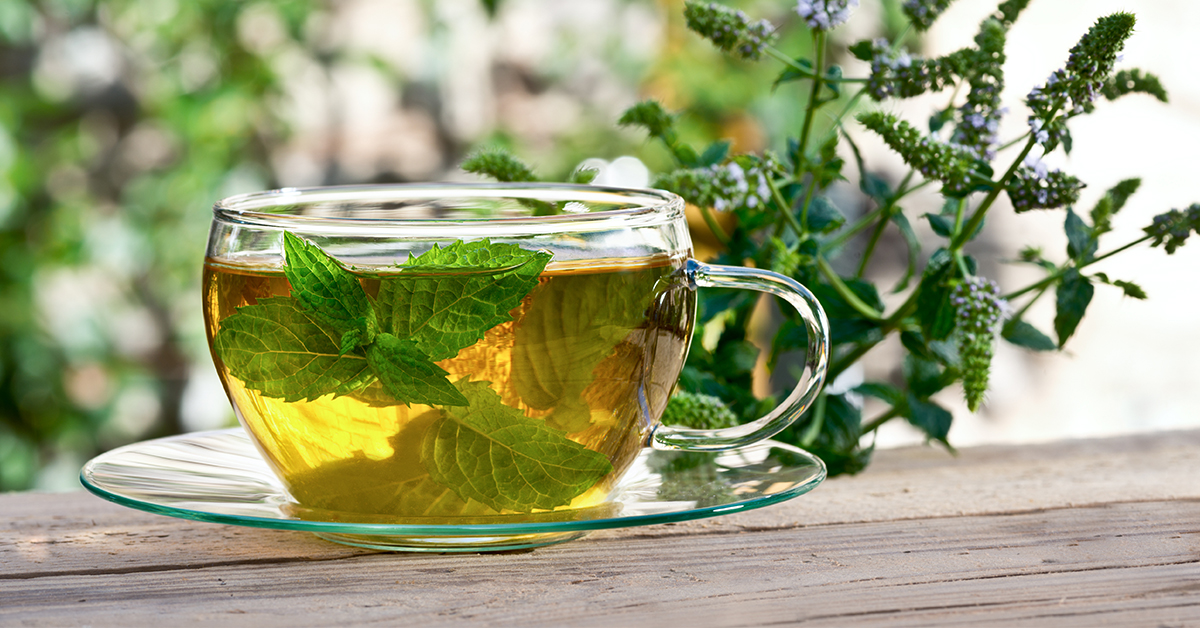
Carminative Comfort Tea
Ingredients:
- 1 teaspoon dried peppermint leaves
- ½ teaspoon dried fennel seeds
- ½ teaspoon dried thyme leaves
- 1 cup of boiling water
Preparation:
- Mix the herbs in a teapot.
- Pour boiling water over the herbs and steep for 8-10 minutes.
- Strain and drink up to twice daily to help relieve gas and bloating.
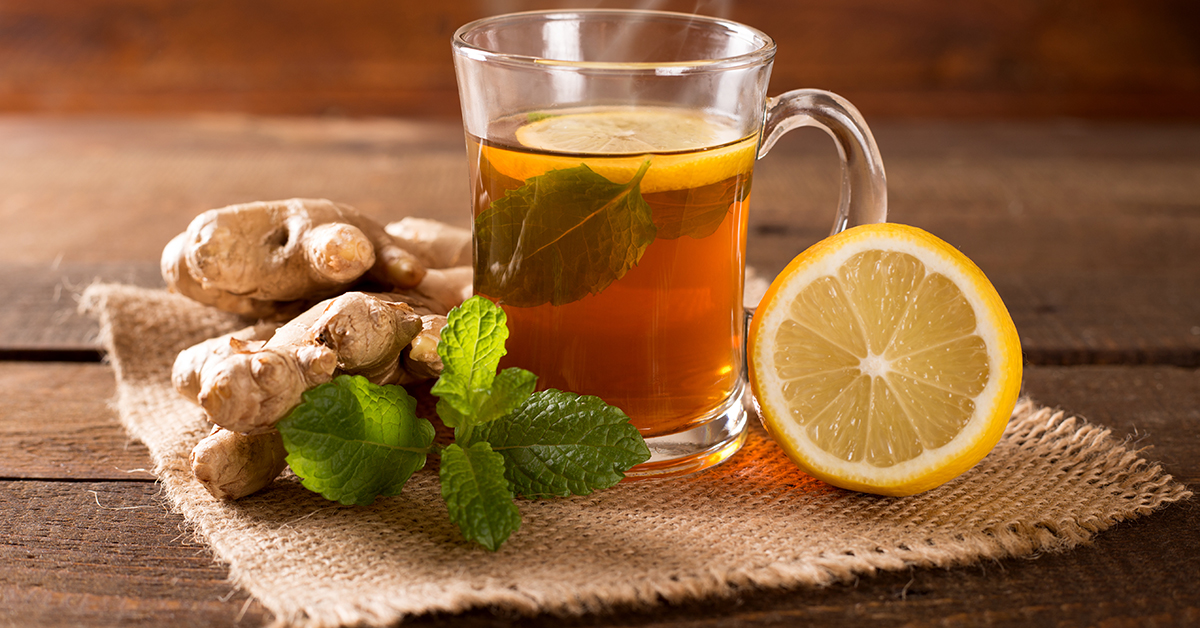
Soothing Stomach Support
Ingredients:
- 1 teaspoon dried chamomile flowers
- ½ teaspoon dried ginger root
- ½ teaspoon dried lemon balm leaves
- ½ teaspoon dried fennel seeds
- 1 cup of boiling water
Preparation:
- Place all dried herbs in a teapot, add boiling water, and steep for 10-12 minutes.
- Strain and drink once daily to support digestion and reduce bloating.
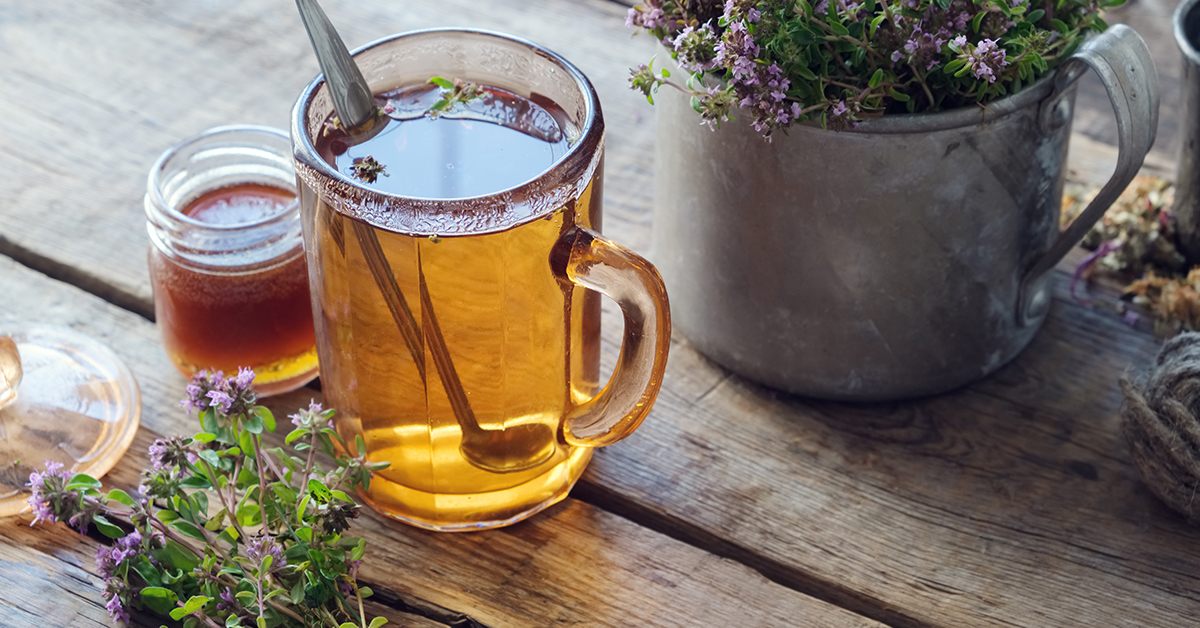
Digestive Harmony Blend
Ingredients:
- 1 teaspoon dried peppermint leaves
- 1 teaspoon dried fennel seeds
- ½ teaspoon dried ginger root
- ½ teaspoon dried thyme leaves
- 1 cup of boiling water
Preparation:
- Combine herbs in a teapot, cover with boiling water, and steep for 10 minutes.
- Strain and drink after meals to help prevent and relieve bloating.
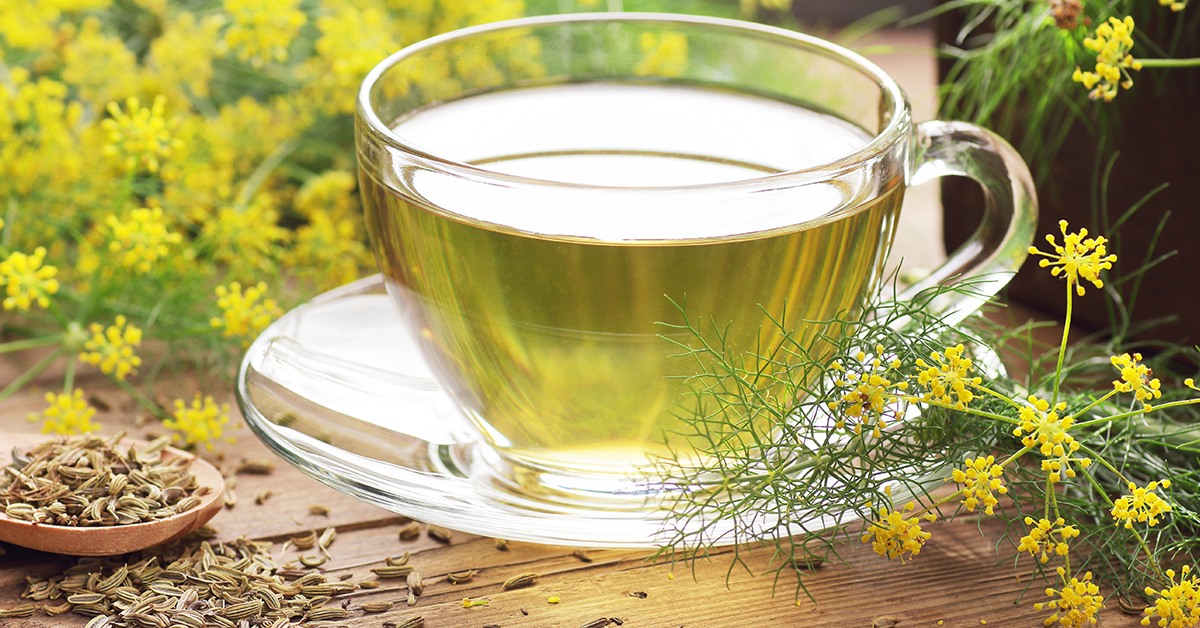
Potent Anti-Bloat Infusion
Ingredients:
- 1 teaspoon dried peppermint leaves
- 1 teaspoon dried chamomile flowers
- ½ teaspoon dried fennel seeds
- ½ teaspoon dried thyme leaves
- ½ teaspoon dried lemon balm leaves
- 1 cup of boiling water
Preparation:
- Add all dried herbs to a teapot, pour in boiling water, and steep for 12-15 minutes.
- Strain and drink once daily when experiencing significant bloating for maximum relief.
These tea recipes are designed to be easily integrated into daily routines, providing a practical and enjoyable approach to managing digestive health naturally. Adjust the blends according to personal preference and consult a healthcare provider before starting any new herbal regimen, especially if you are taking medications or have existing health conditions.
☯️ Integrating Herbs into Daily Life for Bloating Relief
Incorporating herbs into your daily routine can help manage bloating and support digestive health. Here are practical ways to use herbs effectively and complementary practices to enhance their benefits.
Daily Use and Lifestyle Integration
- 🫖 Herbal Teas: Start your day with a cup of peppermint, ginger, or fennel tea. These can help prepare your digestive system for the day ahead. Sip chamomile or lemon balm tea after meals to aid digestion and prevent bloating.
- 💚 Herbal Supplements: If you prefer not to drink herbal teas, consider taking ginger, fennel, or peppermint in capsule form. These can be easily incorporated into your daily supplement routine.
- 🌿 Culinary Herbs: Use herbs like thyme, fennel seeds, and ginger in your cooking. Add them to soups, stews, and stir-fries for flavor and digestive benefits.
Additional Practices to Support Digestive Health
- 🥦 Dietary Adjustments: Incorporate fiber-rich foods like fruits, vegetables, and whole grains into your diet. These can help prevent constipation, a common cause of bloating. Be aware of foods that may trigger bloating, such as dairy or certain vegetables.
- 🍎 Mindful Eating: Eat slowly and chew your food thoroughly. This can help reduce the amount of air you swallow and improve digestion.
- 🫗 Hydration: Drink plenty of water throughout the day. For added digestive support, infuse your water with herbs like lemon balm or fennel.
- 🧘♀️ Stress Management: Practice stress-reduction techniques such as deep breathing or meditation. Stress can impact digestion and contribute to bloating.
By integrating these herbs and practices into your daily life, you can effectively manage bloating and support overall digestive health. Start with small amounts of herbs to see how your body responds.
🌱 Navigating Herbs Safely
Starting with small doses is the first step when adding herbal remedies to your health routine. This approach lets you see how you respond and adjust amounts for the best effect, keeping safety in mind. While many herbs are safe, everyone’s body reacts differently. If you notice any side effects, it’s important to stop and think about what might be causing them.
Remember, herbs can sometimes interact with prescription medicines. These interactions might make your medicines work too well or not well enough, which is why talking to a healthcare provider or an herbalist is essential. This is especially crucial if you’re pregnant, breastfeeding, taking medications regularly, or have an existing health condition. Getting advice tailored to your situation can help you avoid any unnecessary risks.
For kids and older adults, being extra careful with herbs is important. Their bodies might react more strongly to herbal remedies, and the chance of side effects or interactions could be greater. Before giving herbal treatments to children or elderly family members, getting advice from a professional is a must to ensure their safety.
By being cautious and seeking expert advice when needed, you can make herbal remedies a safe part of your wellness plan. This careful approach allows you to enjoy the benefits of herbs while keeping yourself and your family safe.
FAQ
Can herbal teas really help with bloating?
Yes, herbal teas can effectively relieve bloating for many people. Certain herbs have properties that can help soothe the digestive system and reduce gas buildup. For example, peppermint (Mentha piperita) contains menthol, which has antispasmodic effects that can relax the gastrointestinal tract muscles. This relaxation can help ease bloating by allowing gas to move more freely through the digestive system. Similarly, fennel (Foeniculum vulgare) contains compounds with carminative properties, which can help prevent and expel gas from the intestines. Ginger (Zingiber officinale) is another herb that can be beneficial, as it promotes gastric emptying and intestinal motility. While herbal teas are not a cure-all, many people find them helpful in managing bloating symptoms when used as part of a balanced approach to digestive health.
How often should I drink herbal tea for bloating relief?
The frequency of herbal tea consumption for bloating relief can vary depending on individual needs and the herb used. Generally, it's safe for most people to drink 1-3 cups of herbal tea daily for digestive support. For example, you might start your day with a cup of ginger tea, have a cup of peppermint tea after lunch, and end your day with a cup of chamomile (Matricaria recutita) tea. However, it's important to listen to your body and adjust accordingly. Some people may find relief with just one cup per day, while others might benefit from more frequent consumption. It's also worth noting that the timing of tea consumption can be important. Drinking tea about 30 minutes after meals can be particularly helpful for digestion and bloating relief. As with any dietary change, it's advisable to start slowly and increase gradually to see how your body responds.
Are there any risks or side effects associated with using herbs for bloating?
While herbs are generally considered safe for most people when used in moderation, there can be risks and side effects associated with their use, especially in large amounts or for certain individuals. For example, peppermint can worsen symptoms in people with acid reflux. Fennel might cause allergic reactions in people sensitive to plants in the carrot family. Some herbs can interact with medications or affect certain medical conditions. For instance, people with hormone-sensitive conditions should use fennel with caution due to its potential estrogenic effects. Pregnant women should consult their healthcare provider before using any herbal remedies, as some herbs may not be safe during pregnancy. It's also possible to experience individual sensitivities or allergies to certain herbs. If you experience any adverse reactions such as nausea, vomiting, or skin rashes after consuming herbal teas or supplements, discontinue use and consult a healthcare professional. As with any health-related decision, it's always best to consult a healthcare provider before starting a new herbal regimen, especially if you have existing health conditions or are taking medications.

